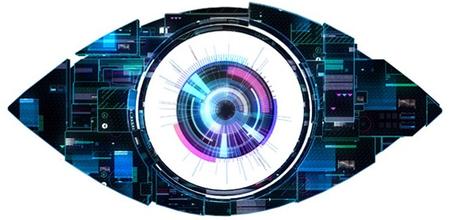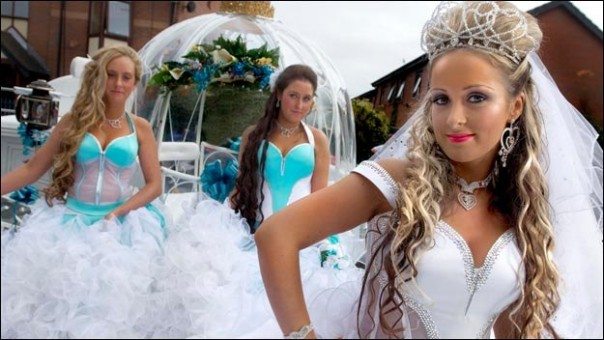Our unreal addiction to reality television
Reality television is truly one of the worst inventions of modern life – a monstrous phenomenon with the power to make and break the lives of those around it, and to do so without pity, with the watching approval of its seemingly ever-growing audience. Why, if it is the lowest form of televisual entertainment, with an enjoyment level on par to a grubby stranger entering your house and defecating on your face, does it enjoy such a crazy amount of popularity? What reason could explain its continued success and growth?
The early examples of reality TV – things such as Love Island and Big Brother – were enjoyed and consumed as a breath of fresh air, an interesting new idea for the public to enjoy. But as these shows grew into hits, executives realized that they had a magic formula – cheap, easy-to-film programmes that guaranteed large viewing figures, regardless of the quality. It was a sort of specific alchemy that could turn crap into gold.

pictured: Simon Cowell (left) and Cheryl Cole (right) at X Factor Auditions for series 7
source: wikipedia.com
And we come to the dark lord himself – Simon Cowell, a high-trousered LEGO man designed at right angles, a charisma vacuum with no discernable skills but one – he knows how to market. The demon The X Factor was born, and retained a popularity inexplicable for the fact it is essentially a music abattoir, mincing through talent and morons like a tone-deaf butcher and producing a banal music burger that always tastes the same, were it not for the fame delusion. Here was a show that could take anyone, from any background with a set of lungs and a larynx, and make them a star. And a stupendous amount of the viewing public bought into this, hoping that Simon Almighty could make their dreams come true.
As reality shows became more popular, all facets of life were covered – shows such as The Armstrongs, which examined Coventry’s third biggest double glazing company and its bosses, married cretins Ann and John Armstrong. And people were becoming famous simply for being on these programmes, and suddenly, you no longer needed any skill or ability whatsoever, but merely to be a living human. The phrase ‘famous for being famous’ started being bandied about, as these Z-list creatures did nothing more than sing a song in front of Cowell and swear when he said ‘no’, or work in a call centre, or go into the Big Brother house and racially abuse an Indian woman. Then, these people are given shows of their own – a camera follows them around, recording every moment of their dull lives for no reason other than to fill up airtime.
Celebrities began to cotton on to this, and soon, we had shows like I’m A Celebrity… – if your career had taken a nosedive, you could get on one of these programmes and enjoy another fifteen minutes of fame. Obscure 70s pop-stars now had a reason to get up in the morning and not have their orange juice with gin. Sure, it’s fun to dislike a grotesque tattooed manatee, but it’s much more fun to laugh at Keith Chegwin as he forces a kangaroo’s genitals down his throat, desperate to keep the cheques coming in so he can keep off the street.
Hate figures are an important part of society – we all love to point a finger and judge. We hate people we know, and the news helps suggest people we don’t – whereas before we would pour scorn on politicians, bankers and footballers, now we had reality TV to create a new bunch of bastards for us to despise. We are in a situation where we are actively encouraged to hate people we don’t know for cheating on someone we didn’t know existed with someone else that matters less to our life than the average supermarket self-service till, and that is very sad.
Reality TV expanded when executives realized that they had a magic formula – cheap, easy-to-film programmes that guaranteed large viewing figures, regardless of the quality. It was a sort of specific alchemy that could turn crap into gold.
This is where the other side of reality TV comes in – the public aspires to be a pop superstar or live in Chelsea and be rich and free, but it has a mind to go ‘at least it’s better than that’. Watch Barely Legal Drivers with a license, and you’ll be far more confident in your own ability. Watch Big Fat Gypsy Weddings and you’ll feel more civilized than an 18th-century nobleman. When a mentally-disturbed fat woman comes onto The X Factor, sings a song and Cowell the Destroyer belittles her, we as a decent people should be bothered. Instead, the audience jeers and boos, and makes snarky remarks. The assumptions start flying – she’s a council estate creature, scoffing on McDonalds – she doesn’t deserve pity – she deserves to be put in a cage, flogged and laughed as a modern day Elephant Woman until her cholesterol-filled heart gives out. And if she doesn’t die satisfactorily, we’ll jab her body with a stick and leave her for the strays.
This also ties into the thrill of power over another human’s life – with the rise of audience interaction, public votes and eliminations, the sadist in us all delights in the ability to choose those we deem worthy, and cast out the weak and the pathetic – playing God has never been more horrific. We are only a step away from televised murder – every week, ring in and vote for the person you want skewered like the worthless meat kebab they are.
And a final observation – people are often busy and need something easy to slip in to. A lot of the public are imbeciles, and the ability to sit and watch some intelligent drama is but a pipedream, so why bother? Reality TV is like a reassuring quilt that makes you feel comfortable. A number of TV stations have faced cuts, and bosses have confirmed that drama will suffer because it costs a lot and it can’t guarantee the viewing figures. When these options are being cut, then pretty soon, all we’ll be left with is Barely Legal Drivers and The Only Way is Essex.
If that’s not a harrowing image of the future of television, I don’t know what is.



Comments